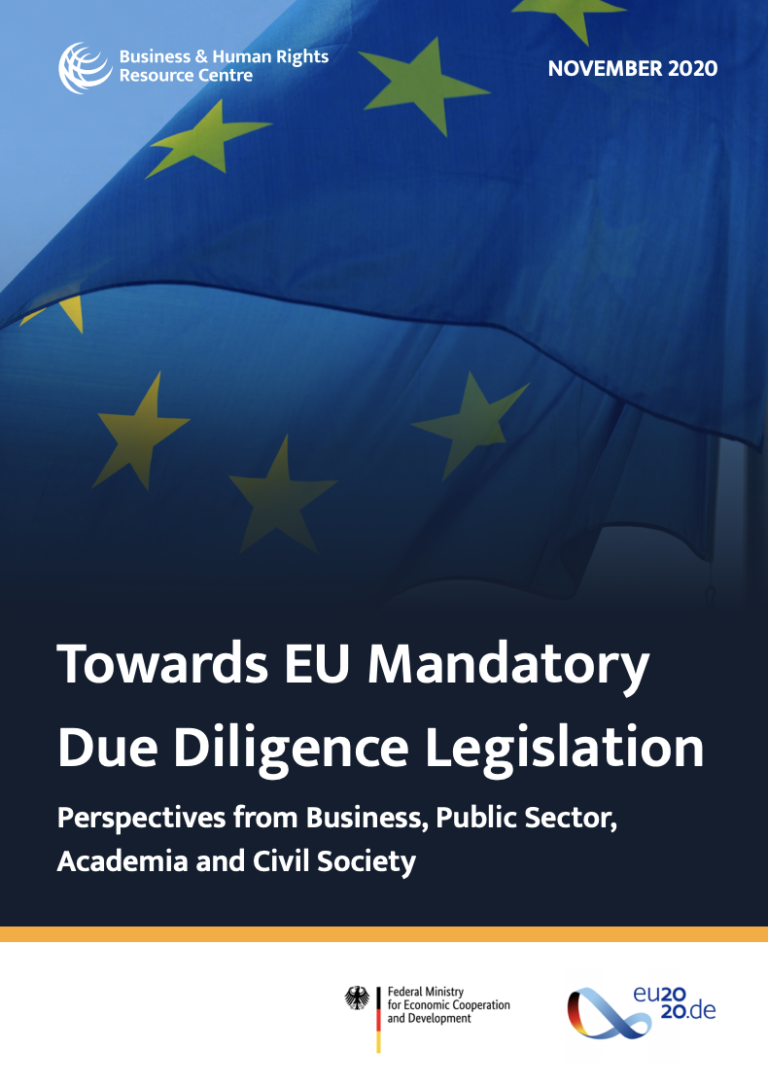The COVID-19 crisis has exposed once more the vulnerabilities in value chains and precarity of global business operations – and the weakness of voluntary corporate action in addressing these issues. The devastating consequences are felt most by millions of workers and communities around the world. However, there are signs this could change. There has been growing momentum worldwide among governments, companies, investors and civil society, for mandatory human rights and environmental due diligence (HREDD).
Cross-sectoral regulation is already in place or under discussion in a number of European countries, including France, the Netherlands, Switzerland, Finland, Sweden and Germany, paving the way towards regional harmonisation. Earlier this year, the European Commission committed to introducing such legislation within the European Union (EU), and has just launched a public online consultation on ‘sustainable corporate governance’, including mandatory HREDD. ‘Legislation on sustainable corporate governance’ is also part of the Commission’s work progamme for 2021.

